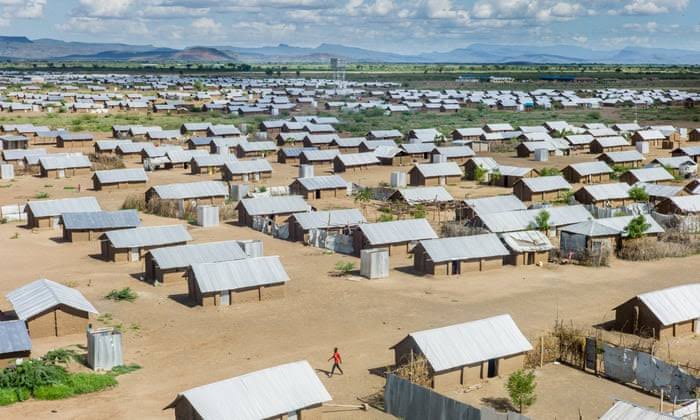NAIROBI, Kenya, Apr 6- The Amnesty International has called on the government to rescind its decision to close down Dadaab and Kakuma refugee camps.
On March 24, the Interior ministry gave a 14-day ultimatum to the UN Refugee agency to have a definite road map on closing the two camps. Interior Cabinet Secretary Fred Matiang’i while issuing the notice said no room for further negotiation, citing security concerns as the reason for the government decision.
However, in a statement released a day to the government dateline, Amnesty International said the ultimatum has recreated the fear that the principle of non-refoulment may be violated for the 500,000 refugees currently hosted by Kenya.
The international agency human rights agency dismissed the security concerns raised by the Interior Ministry, arguing that there was no evidence of an escalated security risk arising from the camps in April 2021.
The agency said the security situation around the region had not improved for most refugees to safely return to their countries of origin nor have other countries come forward to resettle them.
They cited the conflict in Somalia and Ethiopia, pre and post-election violence in Uganda and Tanzania as well as the persecution of sexual minority communities in Uganda as reason why voluntary return of most refugees remain untenable.
“Closure of Dadaab and Kakuma camps without an orderly approach that respects refugee rights invites a humanitarian disaster within the global COVID-19 pandemic,” Amnesty International Kenya Executive Director Irũngũ Houghton said in a statement.
They called on the international community to step in and help support Kenya in shouldering the refugee burden, as well as provide third-country resettlement of refugees.
“Rather than persecuting refugees, the Government of Kenya can use its influence at the UN Security Council to demand that the international community shoulder its fair share of the responsibility to protect refugees,” Irũngũ said.
Instead of a rushed decampment program, he called on the Government of Kenya and UNHCR to review the encampment approach in line with regional and international best practices.
Long-term camps deprive thousands of men, women and children of their dignity and reduce them to defendants of humanitarian aid, he said calling for local integration and self-reliance policies and programs.
“The Government of Kenya must not abandon its history as a sanctuary nation in the middle of a pandemic or a diplomatic dispute with the Government of Somalia. Instead, it must use its international leadership on the UN Security Council to advocate for more resources and opportunities for both host nations and refugees,” Irungu urged.
Want to send us a story? Contact Shahidi News Tel: +254115512797 (Mobile & WhatsApp)


